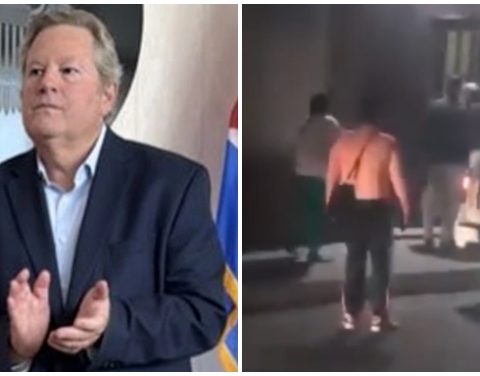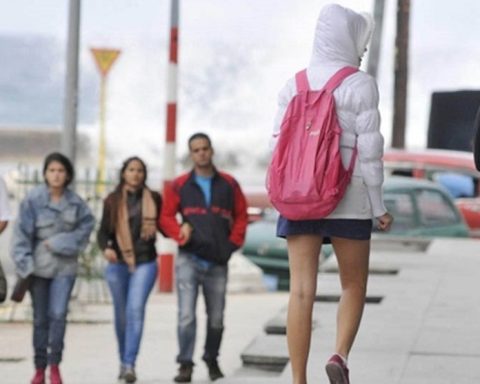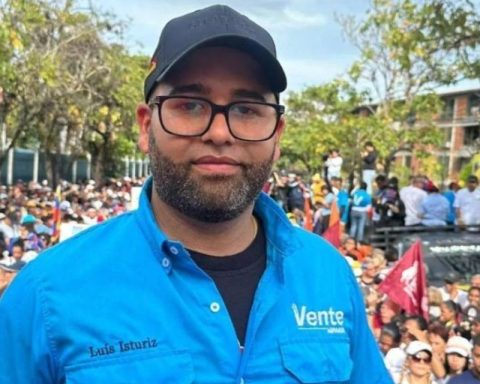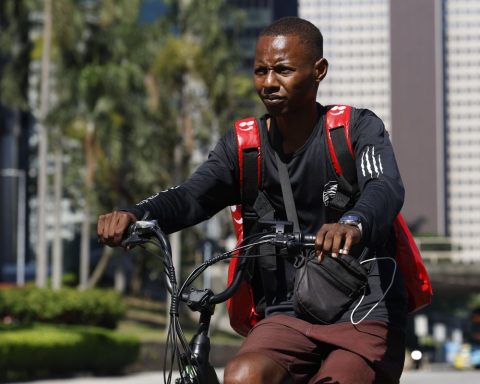A Russian sergeant was sentenced to life in prison on Monday as part of the first trial for war crimes committed during the Russian invasion of Ukraine. Vadim Shishimarin, 21, a tank commander, pleaded guilty to cold-bloodedly executing 62-year-old civilian Oleksandr Shelipov in the village of Chupakhivka in northeastern Ukraine on February 28.
After a week-long trial, Ukrainian judge Serhiy Agafonov said that following a “criminal order” from a higher-ranking officer, Shishimarin fired several shots at the victim’s head with an automatic weapon.
“Since the crime committed is a crime against peace, security, humanity and the international and Ukrainian legal order, the court does not see the possibility of imposing a (lesser) sentence,” the judge said.
Shishimarin watched the proceedings in silence from a bulletproof glass box in the courtroom and showed no emotion when the verdict was read. He stood with his head bowed, listening to a translator.
His lawyer, Viktor Ovsyannikov, told Reuters he was not surprised by the sentence because there had been “some pressure from society” but that he would still file an appeal.
kyiv has accused Russia of atrocities and brutality against civilians during the invasion and said it has identified more than 10,000 possible war crimes. Russia has denied targeting civilians or engaging in war crimes while carrying out what it calls a “special military operation” in Ukraine.
The Kremlin did not immediately comment on the verdict. He previously said he had no information about the trial and that the absence of a diplomatic mission in Ukraine limits his ability to provide assistance.
Ukrainian state prosecutors said Shishimarin and four other Russian servicemen stole a car to escape after their column was attacked by Ukrainian forces.
Shortly after reaching Chupakhivka, the soldiers saw Shelipov on a bicycle talking on the phone. Shishimarin was ordered to kill Shelipov in order to prevent her from informing local authorities of his location, prosecutors said.
Last week, Shishimarin admitted in court that he was at fault and asked the victim’s widow to forgive him. But the woman refused to do so.
Mark Ellis, executive director of the International Bar Association, said the verdict was “not a surprise” and could be the first part of “a big puzzle that also involves Ukrainian soldiers detained in Russia”.
“If this is the benchmark test […] It sets the bar very high,” he said. “For most other war crimes cases in Ukraine, including by Ukrainian troops, I suspect we will see similar sentences because this is the benchmark trial.”

















